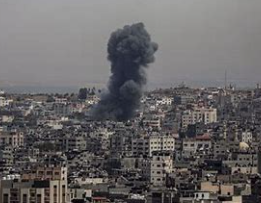Whitney Wright, an American adult film actress who is also known by her real name, Brittni Rayne Whittington, recently found herself in the midst of an online storm following her visit to Iran.
The 32-year-old actress, who is a vocal supporter of Palestinians, embarked on a journey to Iran in February 2024. Her trip included a visit to various locations in Tehran, the capital city of Iran, and she shared photos of her experiences on social media platforms, including X, formerly known as Twitter, and Instagram.
However, her posts sparked controversy, with several individuals accusing her of promoting the Iranian government, which has been criticized by Amnesty International for defying human rights norms and employing “cruel and inhuman punishments.” One of the significant places she visited was the former U.S. Embassy in Tehran, a site that holds historical significance due to the 1979 hostage crisis. Despite the backlash, Wright continues to use her platform to advocate for the causes she believes in.
Stirring Controversy on Whitney Wright
Wright’s visit to Iran didn’t go unnoticed and stirred up a storm of criticism. This was particularly due to the timing of her visit, which coincided with Iran’s intensified crackdown on women following the tragic death of Mahsa Amini in police custody in 2022. This incident had already sparked nationwide protests, and Wright’s visit during such a volatile period was seen by many as contentious.
Wright adhered to the country’s strict dress code, known as the “hijab and chastity bill,” and shared photos on Instagram where she was seen wearing a headscarf and modest attire. She visited various tourist spots, including the Saadabad Palace and the International Arts Museum. However, her visit was perceived by some social media users as an endorsement of Iran’s government. A particular photo that sparked outrage was one where she stood with a lowered flag outside the former U.S. embassy, a site known for the Iran hostage crisis.
Museum. However, her visit was perceived by some social media users as an endorsement of Iran’s government. A particular photo that sparked outrage was one where she stood with a lowered flag outside the former U.S. embassy, a site known for the Iran hostage crisis.
In response to the criticism, Wright clarified in an Instagram comment, “I’m sharing exhibits from a museum that are never seen. It’s not an endorsement of the government.” The U.S. State Department advises Americans to avoid Iran due to the risk of “wrongful detention.” Notably, the production of pornography has been illegal in Iran since 2007 and is punishable by death. The Iranian state news agency Tasnim reported that the visa system was not aware of Wright’s occupation, confirming that she had not been invited to Tehran by any organization.
Iranian authorities Response
Iranian authorities stated they didn’t facilitate Whitney Wright’s visit. They issued her a visa like any foreign citizen, unaware of her profession. Iranian Foreign Ministry spokesperson, Nasser Kanaani, had no information about her visit. The Iranian state news agency, Tasnim, confirmed that Wright wasn’t invited to Tehran by any official organization.
Advocacy Amid Backlash

Despite the controversy surrounding her visit, Wright remained unwavering in her advocacy for Palestinians. However, her visit to Iran triggered a backlash on social media, with critics accusing her of endorsing the Iranian government, which has been called out by Amnesty International for human rights violations. In response to the backlash, Wright expressed her disappointment on social media, lamenting that the focus on her visit was overshadowing the ongoing conflict in Gaza.
In the aftermath of her visit, Wright faced a wave of criticism on social media. Despite this, she continues to leverage her platform to draw attention to the ongoing conflict in Gaza. Her visit to Iran stands as a testament to her commitment to her advocacy and serves as a reminder of the influence of individual voices in global dialogues.
Advocacy Journey
Whitney Wright’s visit to Iran has ignited a global conversation about advocacy, human rights, and the role of public figures in political discourse. Despite the controversy and backlash, Wright remains steadfast in her support for Palestinians and continues to use her platform to highlight the ongoing conflict in Gaza. As the world watches, Wright’s journey serves as a powerful reminder of the impact of individual voices in global conversations.











